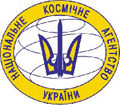The findings of an independent commission investigating the causes of the accident of the Vega C light European rocket cast a shadow on the reputation of Ukrainian cosmonautics. This is reported on the website of the State Space Agency of Ukraine (SCAU).
"The statement based on the conclusions of the independent commission, unfortunately, leaves no reason for further discussions and casts a shadow on the reputation of the space industry of Ukraine," the Ukrainian organization writes.
According to the SCAU, the conclusions presented by the European side are premature and need further study. The Ukrainian organization is confident that the quality of products supplied from Ukraine to Europe meets all the necessary requirements.
The SCAU notes that it learned about the results of the investigation into the causes of the Vega C accident from the European press, and the conclusions of the Ukrainian specialists involved in the investigation were not taken into account.
In March, SpaceNews, citing Avio Executive Director Giulio Ranzo and Chief Technical Officer of Arianespace launch operator Pierre-Yves Tissier, reported that the cause of the Vega C accident, during the flight of which the thrust drop occurred at the Zefiro 40 solid-fuel engine of the second stage, was "excessive thermomechanical erosion" of the nozzle neck insert. The destruction of the part purchased in Ukraine occurred due to its high porosity.
During the unsuccessful launch of Vega C, which occurred on December 20, 2022, the Earth remote sensing satellites Pleiades Neo 5 and Pleiades Neo 6 were lost .

